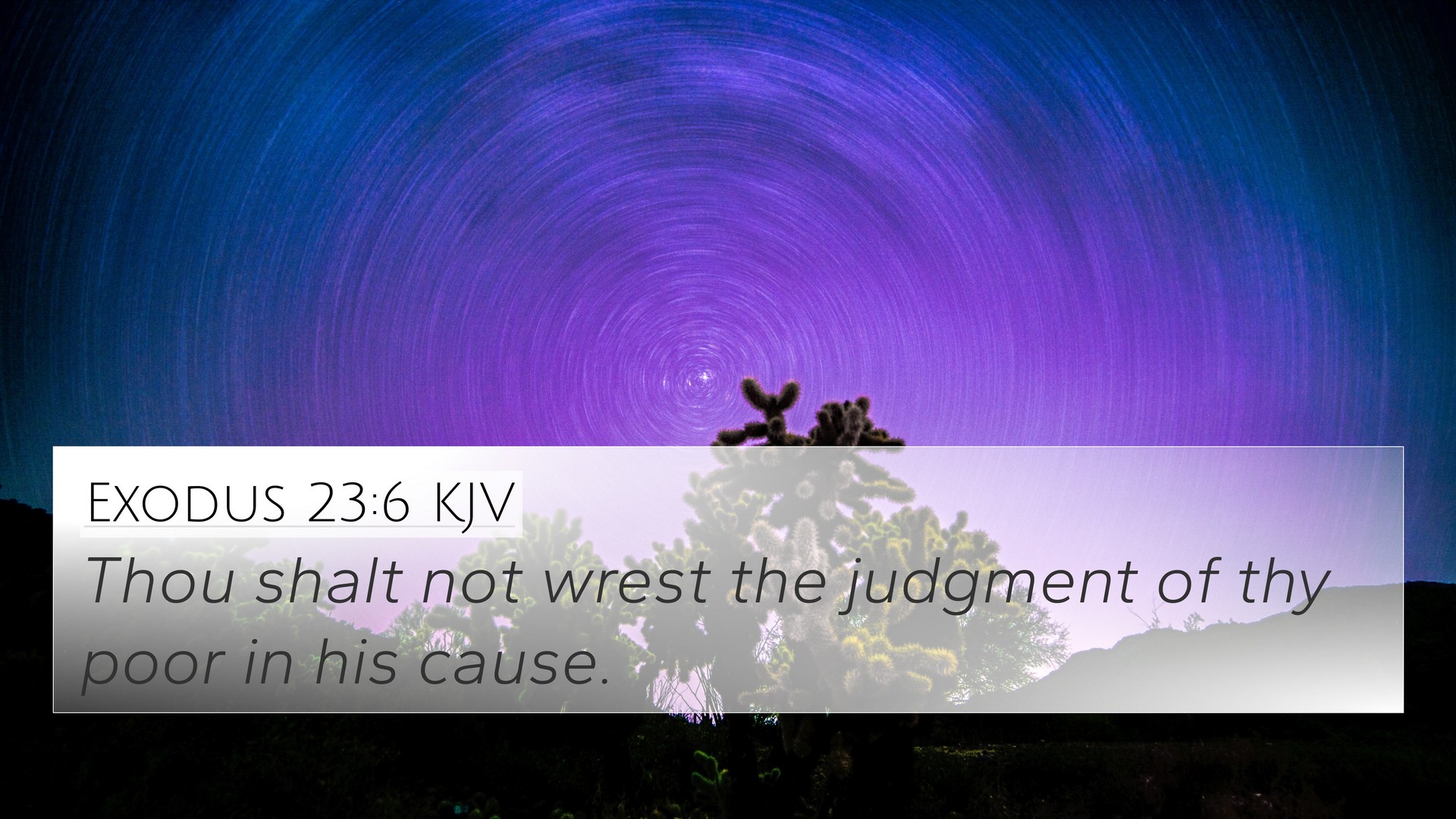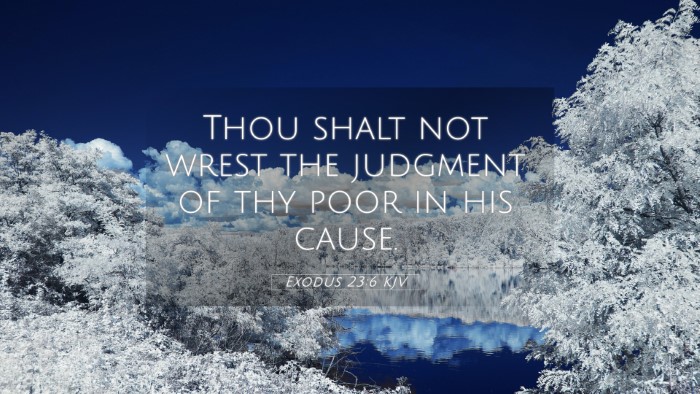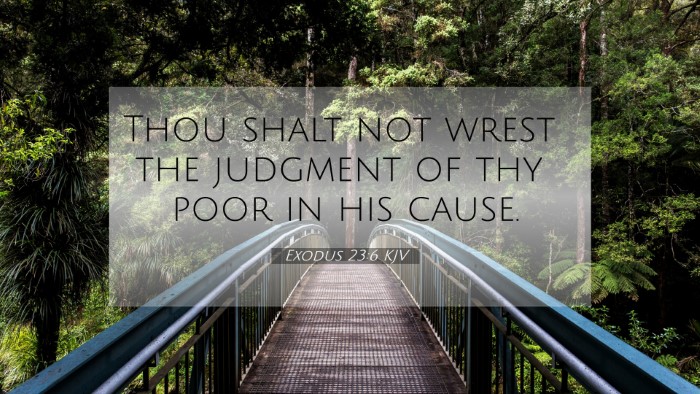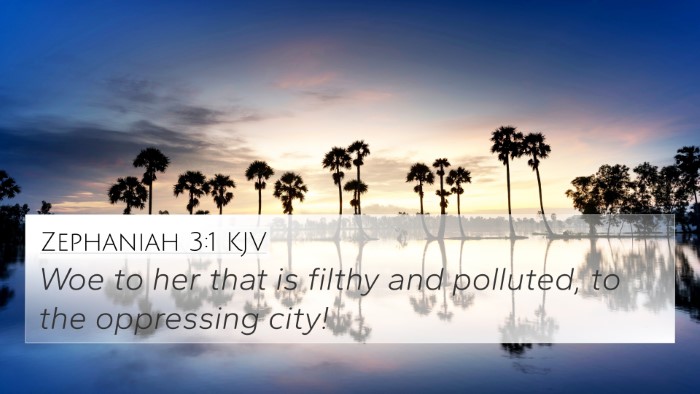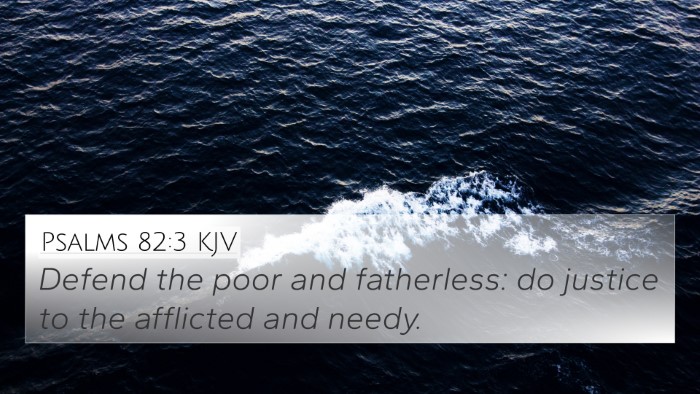This section features a detailed cross-reference designed to enrich your understanding of the Scriptures.
Below, you will find carefully selected verses that echo the themes and teachings related to Exodus 23:6 KJV. Click on any image to explore detailed analyses of related Bible verses and uncover deeper theological insights.
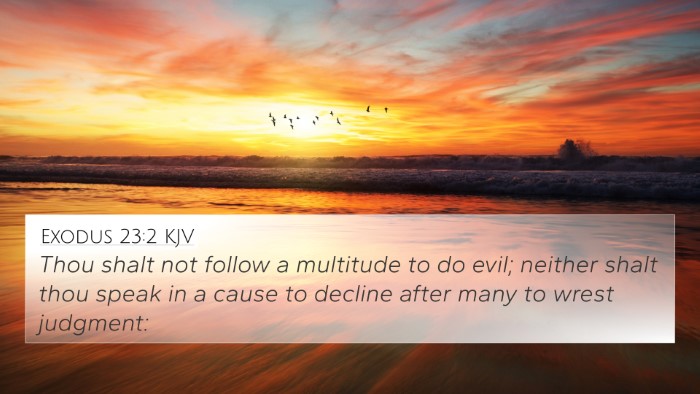 Exodus 23:2 (KJV) »
Exodus 23:2 (KJV) »
Thou shalt not follow a multitude to do evil; neither shalt thou speak in a cause to decline after many to wrest judgment:
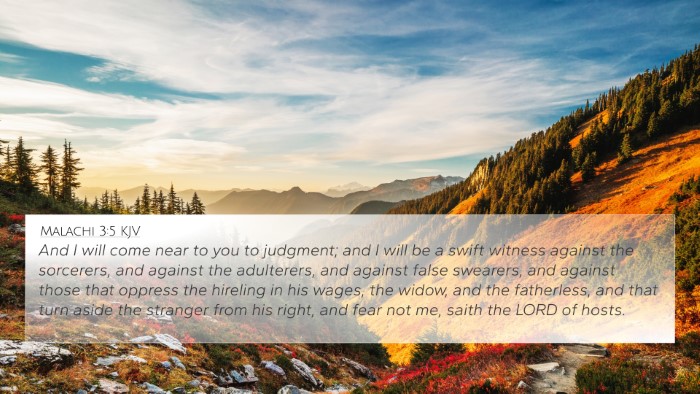 Malachi 3:5 (KJV) »
Malachi 3:5 (KJV) »
And I will come near to you to judgment; and I will be a swift witness against the sorcerers, and against the adulterers, and against false swearers, and against those that oppress the hireling in his wages, the widow, and the fatherless, and that turn aside the stranger from his right, and fear not me, saith the LORD of hosts.
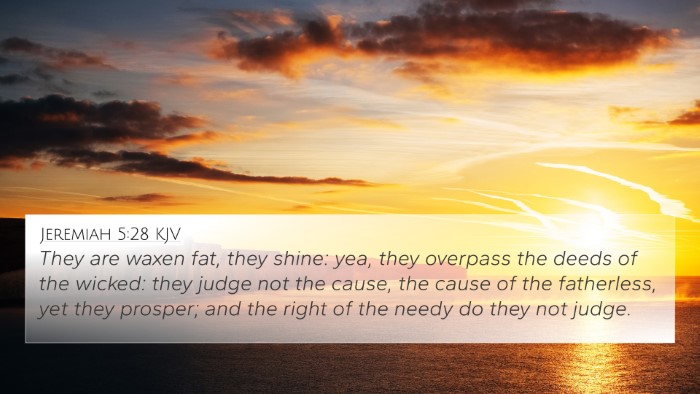 Jeremiah 5:28 (KJV) »
Jeremiah 5:28 (KJV) »
They are waxen fat, they shine: yea, they overpass the deeds of the wicked: they judge not the cause, the cause of the fatherless, yet they prosper; and the right of the needy do they not judge.
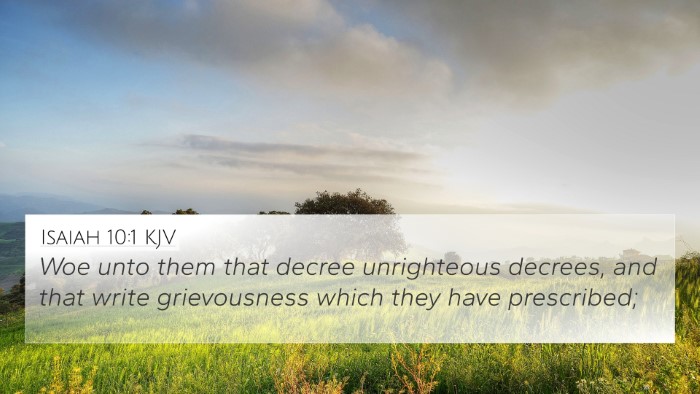 Isaiah 10:1 (KJV) »
Isaiah 10:1 (KJV) »
Woe unto them that decree unrighteous decrees, and that write grievousness which they have prescribed;
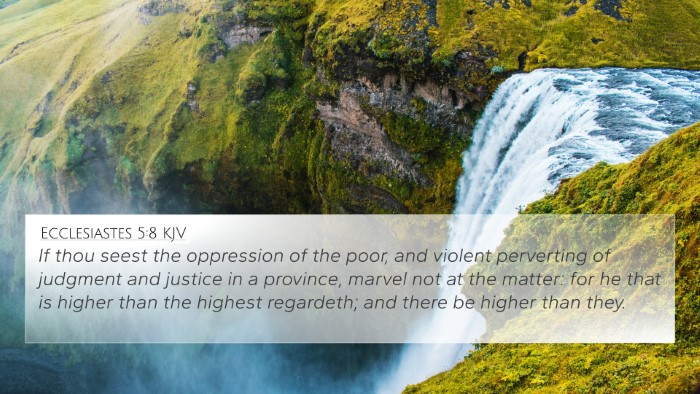 Ecclesiastes 5:8 (KJV) »
Ecclesiastes 5:8 (KJV) »
If thou seest the oppression of the poor, and violent perverting of judgment and justice in a province, marvel not at the matter: for he that is higher than the highest regardeth; and there be higher than they.
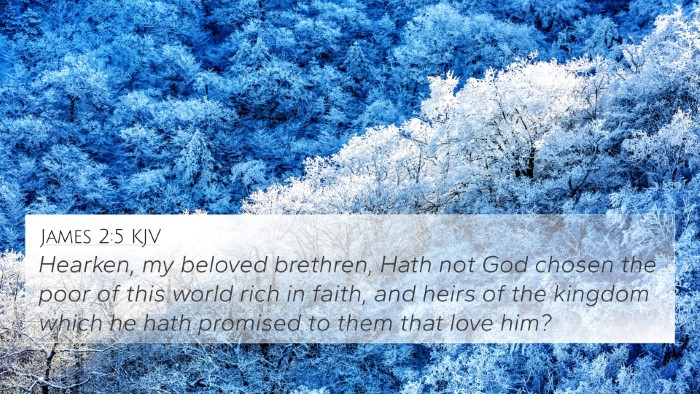 James 2:5 (KJV) »
James 2:5 (KJV) »
Hearken, my beloved brethren, Hath not God chosen the poor of this world rich in faith, and heirs of the kingdom which he hath promised to them that love him?
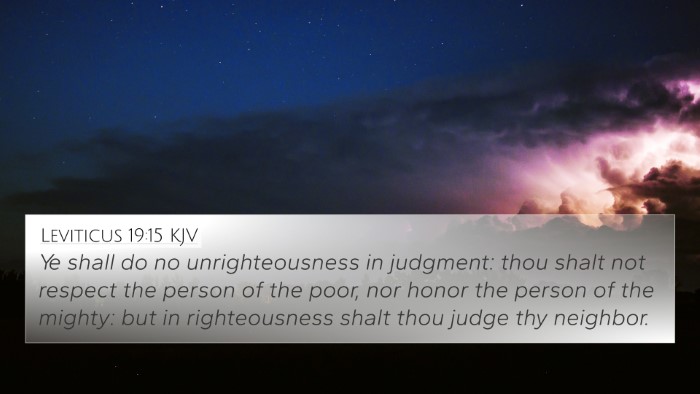 Leviticus 19:15 (KJV) »
Leviticus 19:15 (KJV) »
Ye shall do no unrighteousness in judgment: thou shalt not respect the person of the poor, nor honor the person of the mighty: but in righteousness shalt thou judge thy neighbor.
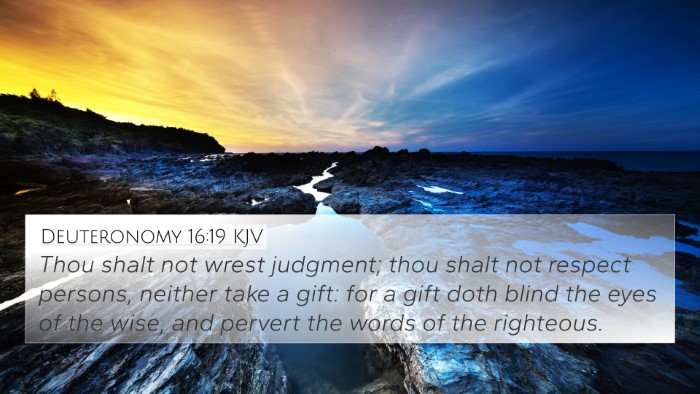 Deuteronomy 16:19 (KJV) »
Deuteronomy 16:19 (KJV) »
Thou shalt not wrest judgment; thou shalt not respect persons, neither take a gift: for a gift doth blind the eyes of the wise, and pervert the words of the righteous.
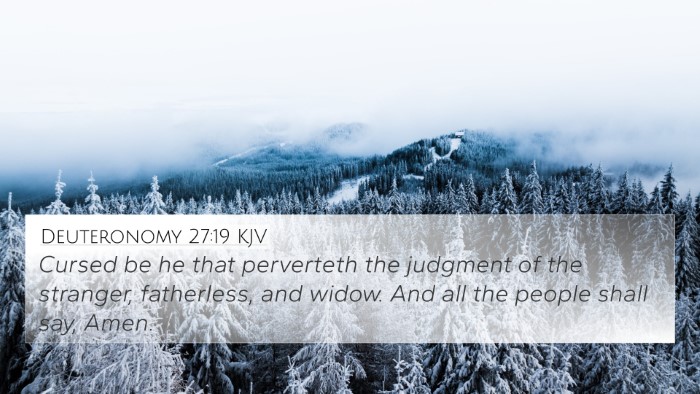 Deuteronomy 27:19 (KJV) »
Deuteronomy 27:19 (KJV) »
Cursed be he that perverteth the judgment of the stranger, fatherless, and widow. And all the people shall say, Amen.
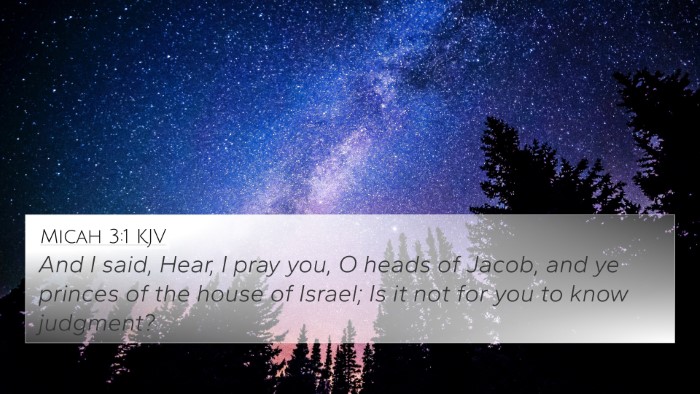 Micah 3:1 (KJV) »
Micah 3:1 (KJV) »
And I said, Hear, I pray you, O heads of Jacob, and ye princes of the house of Israel; Is it not for you to know judgment?
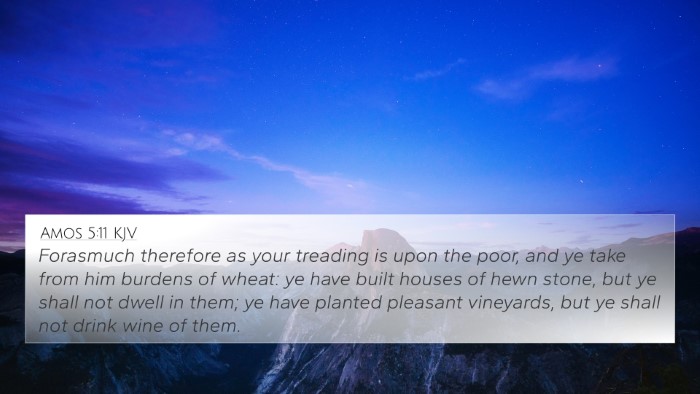 Amos 5:11 (KJV) »
Amos 5:11 (KJV) »
Forasmuch therefore as your treading is upon the poor, and ye take from him burdens of wheat: ye have built houses of hewn stone, but ye shall not dwell in them; ye have planted pleasant vineyards, but ye shall not drink wine of them.
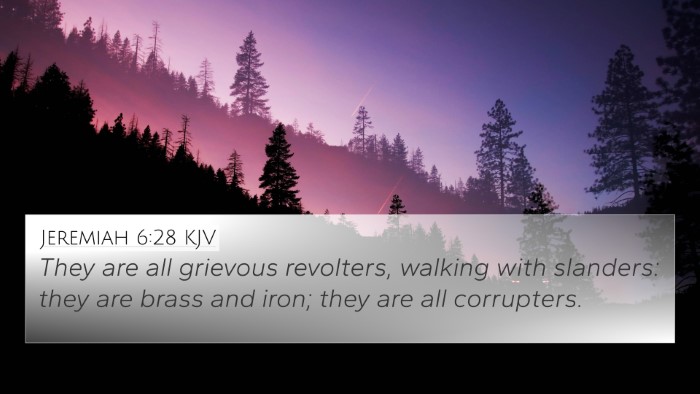 Jeremiah 6:28 (KJV) »
Jeremiah 6:28 (KJV) »
They are all grievous revolters, walking with slanders: they are brass and iron; they are all corrupters.
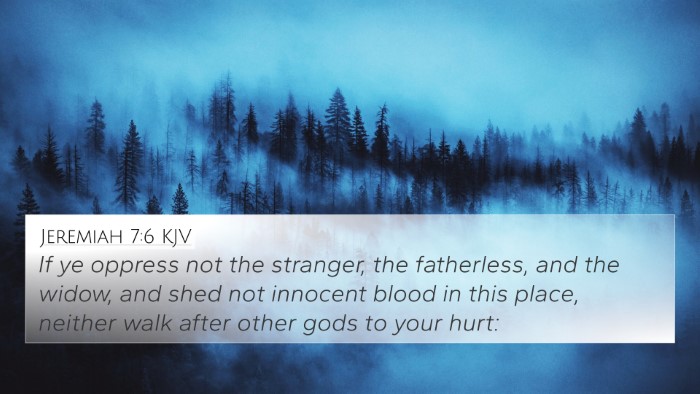 Jeremiah 7:6 (KJV) »
Jeremiah 7:6 (KJV) »
If ye oppress not the stranger, the fatherless, and the widow, and shed not innocent blood in this place, neither walk after other gods to your hurt:
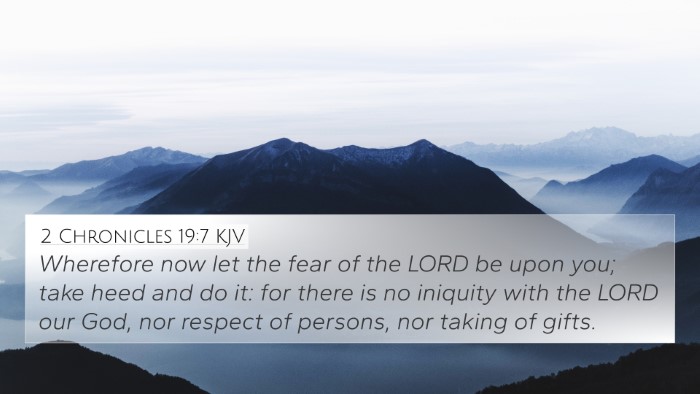 2 Chronicles 19:7 (KJV) »
2 Chronicles 19:7 (KJV) »
Wherefore now let the fear of the LORD be upon you; take heed and do it: for there is no iniquity with the LORD our God, nor respect of persons, nor taking of gifts.
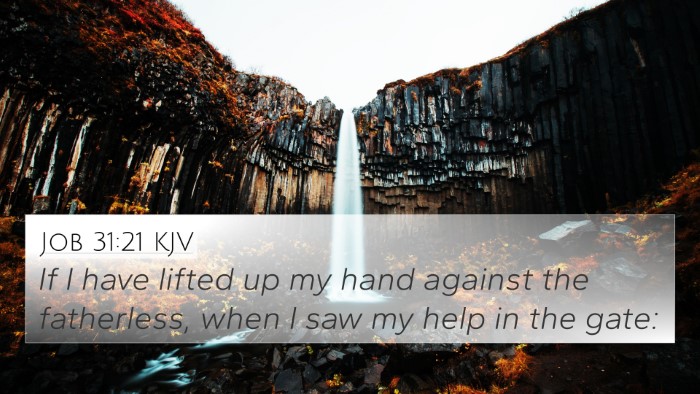 Job 31:21 (KJV) »
Job 31:21 (KJV) »
If I have lifted up my hand against the fatherless, when I saw my help in the gate:
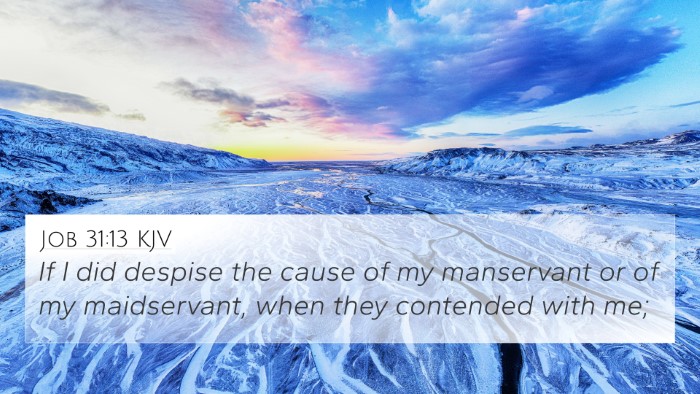 Job 31:13 (KJV) »
Job 31:13 (KJV) »
If I did despise the cause of my manservant or of my maidservant, when they contended with me;
